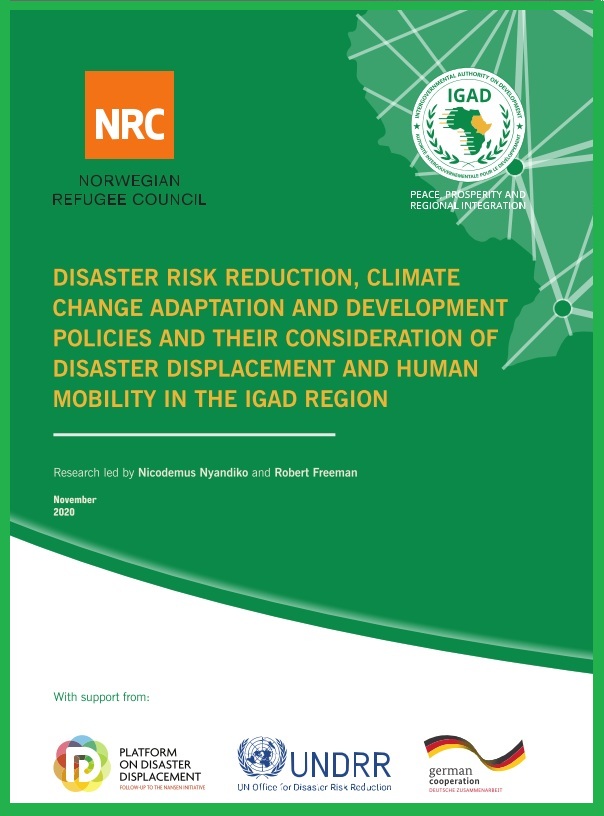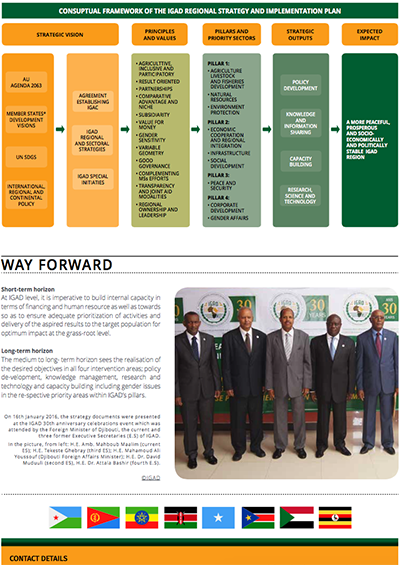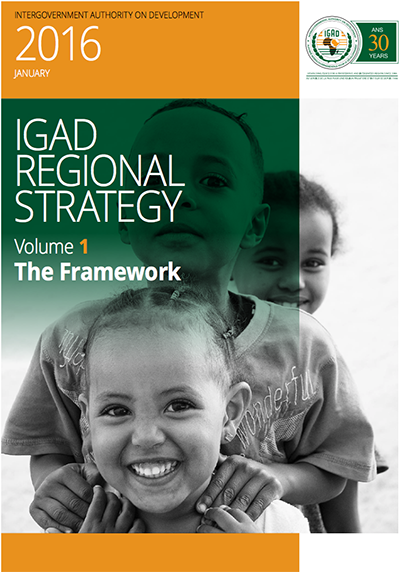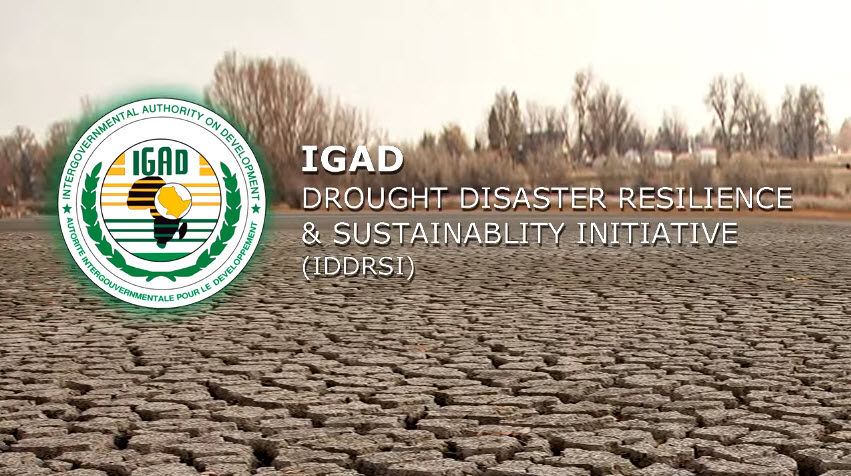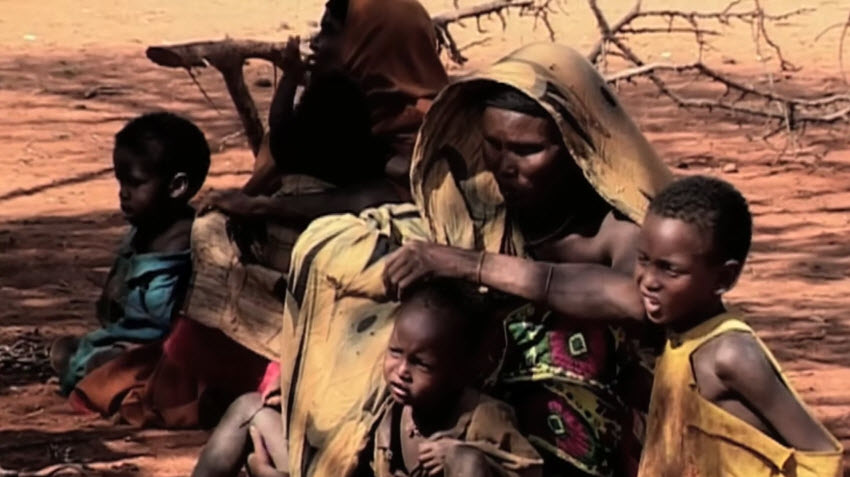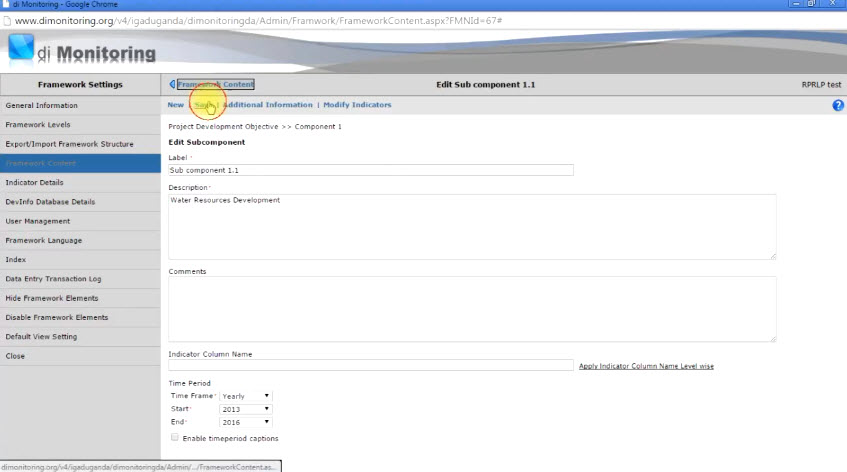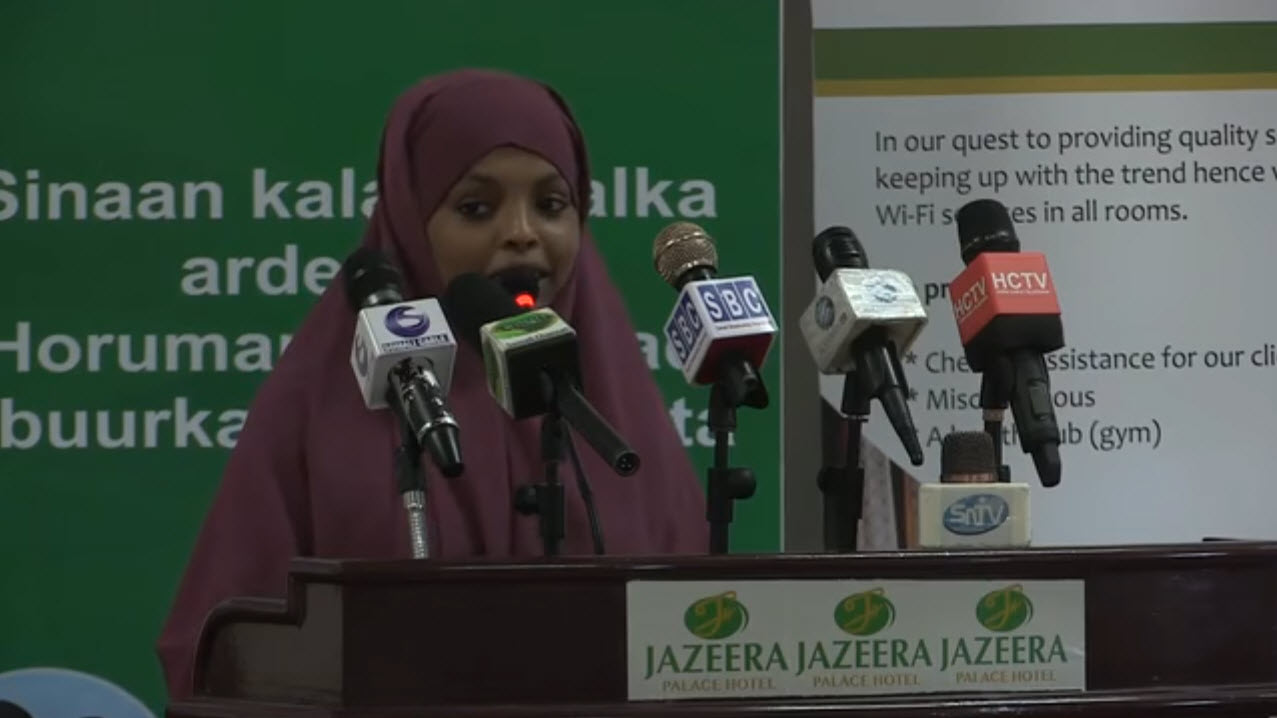IGAD Structure
The Intergovernmental Authority on Development is comprised of four hierarchical policy organs as shown in the Figure 1 below:
- THE ASSEMBLY OF HEADS OF STATE AND GOVERNMENT is the supreme policy making and regulatory organ of the IGAD. It determines the objectives, guidelines and programmes for IGAD and meets once a year. A Chairman is elected from the Member States in rotation.
- THE COUNCIL OF MINISTERS is composed of the Ministers of Foreign Affairs and one other Focal Minister designated by each member state. The Council formulates policy, approves the work programme and annual budget of the Secretariat during its biannual sessions.
- THE COMMITTEE OF AMBASSADORS is comprised of IGAD Member States' Ambassadors or Plenipotentiaries accredited to the country of IGAD Headquarters. It convenes as often as the need arises to advise and guide the Executive Secretary.
- THE SECRETARIAT is headed by an Executive Secretary appointed by the Assembly of Heads of State and Government for a term of four years, renewable once. The Secretariat assists Member States in formulating regional projects in the priority areas, facilitates the coordination and harmonisation of development policies, mobilises resources to implement regional projects and programmes approved by the Council and reinforces national infrastructures necessary for implementing regional projects and policies.
The Executive Secretary is assisted by four Directors responsible for:
- Agriculture and Environment;
- Economic Cooperation and Social Development;
- Peace and Security; and
- Administration and Finance.
Besides the four Divisions and sections at the Headquarters in Djibouti, IGAD has a number of specialized institutions and Programmes hosted by other Member States. These include the IGAD Conflict Early Warning and Response Mechanism (CEWARN), the IGAD Security Sector Programme (ISSP), the IGAD Centre for Pastoral Area and Livestock Development (ICPALD) and IGAD Climate Prediction and Applications Center (ICPAC), and the IGAD Regional Aids Programme (IRAPP).
Comparative Advantage
IGAD is a Regional Economic Community (REC), one of the eight building blocs of the African Economic Community (AEC). The strategic location of the region, its size, ecological diversity, vast resources and people who are naturally integrated by culture and transboundary resources are among the main advantages that IGAD possesses. Furthermore, the IGAD region is host to a number of UN agencies and the AUC (in Addis Ababa and Nairobi), which allows for leveraged communications and faciliating meetings with the various Heads of State on high level policy issues and topics of common interest within the region.
The IGAD also enjoys the support of the individual Member States, as well as having formidable political clout through the high-level policy organs that are able to work collectively on tackling complex regional issues. Despite prevailing bilateral differences between some Member States, there is a positive commitment towards IGAD as the regional development institution. This is exemplified by the regular use of IGAD as a vehicle for addressing regional problems and concerns such as the Sudan and Somalia Peace Processes, regular participation of all countries in the meetings of the IGAD policy organs, financial contributions paid for the up-keep of the Secretariat and the establishment of political instruments such as IGAD Conflict Early Warning and Response Mechanism (CEWARN) the IGAD Security Sector Programme (ISSP), the IGAD Centre for Pastoral Area and Livestock Development (ICPALD) and IGAD Climate Prediction and Applications Center (ICPAC). This political will for regional cooperation is one of the strongest assets of IGAD, and has led to the IGAD Secretariat playing an increasingly important role in regional coordination and working towards developing a common position for the Member States in various regional and international fora, meetings, and conferences.
The programmatic approach adopted by the IGAD, another comparative advantage of the organization, creates the opportunity to connect individual programs and projects to a longer term vision and outcomes. The approach works on the premise that when diverse actors join their forces, the net effect will be bigger than the sum of the individual activities. Furthermore, a programmatic approach recognizes the importance of local ownership as a crucial and decisive element in creating a common vision and a strategy, setting the agenda and priorities, and establishing a plan of action. As a result, the IGAD has been able to create platforms and fora for engaging technical experts from the Member States to discuss issues concerning the environment, transport, gender affairs, health (HIV/AIDS), drought relience initiative (IDDRSI) and many regional technical committees; thus advancing the collective knowledge of the IGAD region. It has also created platforms where IGAD and its Development Partners discuss on regional priority interventions, mainstreaming of development partners’ programmes and projects into regional development frameworks, resources mobilisation and monitoring of the implementation of programmes and projects supported by Development Partners. The IGAD Partners Forum (IPF) at political and technical levels demonstrate additional strength of IGAD.
Capacity building initiatives such as the Institutional Strengthening Action Programme (ISAP) are another major strength of IGAD. These include identifying training needs, developing training concepts to address the needs, mobilising funds to organize, conduct and facilitate the whole range of IGAD activities including cross-cutting themes like information management, gender and mediation processes.

